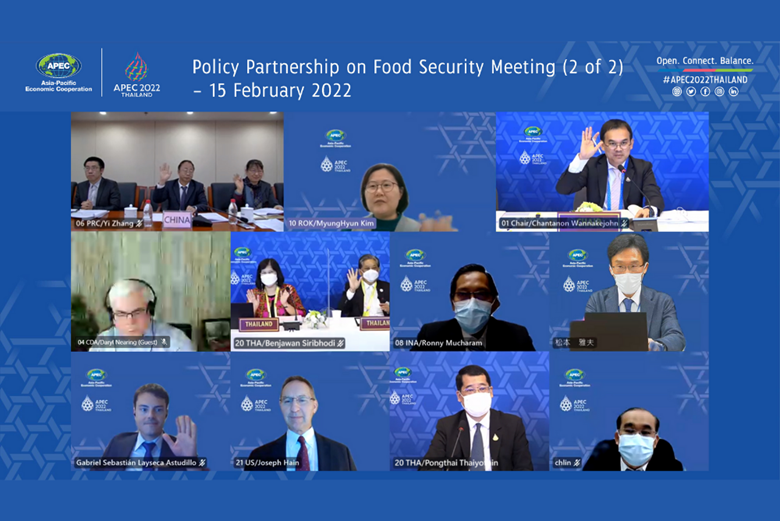APEC to Strengthen Food Security, Safeguard the Environment

Food security, food safety and sustainable agriculture development have long been concerns in Asia-Pacific, and as the region works to overcome the adverse impacts of the COVID-19 pandemic, APEC is advancing actions to ensure that people do not go hungry and are well nourished, while taking care of the environment.
“Despite having various individual food systems, member economies are confronted with similar vulnerabilities, and this is why collaboration will be the key in our efforts to strengthen food security in APEC,” said Chantanon Wannakejohn, Chair of the APEC Policy Partnership on Food Security.
“There is a need for us to improve both the quality and the quantity of our food production, this also includes improving the way we trade our food products with each other,” he added. “While we look for ways to grow and increase our production, we need to decrease the environmental impact of food value chains and support good environmental outcomes.”
“APEC should have a role in addressing some of the key food security challenges as we are, collectively, significant food producers and consumers.”
Sustainability has become the main focus area as APEC officials advance the region’s vision to restore growth that is strong, balanced, secure, sustainable and inclusive, including ensuring food security and safety.
Last year, agriculture and food ministers reaffirmed their commitment to an open, transparent, productive, sustainable and resilient APEC food system by launching a new 10-year food security roadmap.
This year, the Policy Partnership on Food Security will focus on developing concrete actions to carry out the APEC Food Security Roadmap of 2030.
Leveraging the rapid advancement of digital technology over the course of the pandemic, member economies are seeking wider adoption of global data standards to improve the overall transparency and efficiency of food value chains, with a review scheduled to be conducted in 2025.
“Digitalization and other innovative technology provide us with opportunities to strengthen food security by enhancing productivity, minimizing food loss and waste, dealing with climate change and natural disasters, as well as facilitating food waste,” Chantanon added.
Member economies will explore domestic schemes or programs that encourage innovative products and solutions, as well as research and development of emerging technologies such as smart agriculture.
Public-private partnership will also play a key role in supporting members’ individual and collective efforts to minimize the food system’s harmful impact on the environment. For this, economies are looking to intensify public-private investment in infrastructure and cold-chain to reduce the current level of food loss and waste.
“We strongly believe that the future of food security and economic growth will depend on how we can foster growth in parallel with creating the balance in our economy, social and environment front,” Chantanon added. “This is also in line with the theme and priorities of APEC Thailand 2022.”
Thailand has highlighted its economic model of bio-circular-green (BCG) as one of its priorities this year. Agriculture and the food sector are one of the main focus industries—the goal being products diversification and the migration of low-value commodities to value-added products.
The Food Security Ministerial Meeting is scheduled to be held in August this year.
For further details and media inquiries, please contact:
[email protected]

